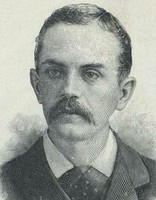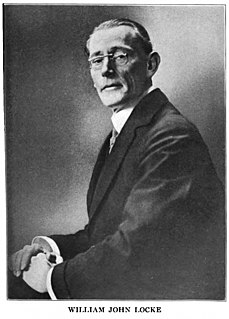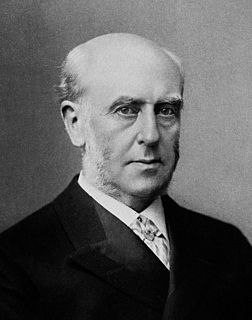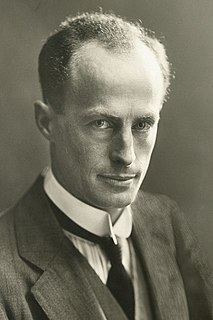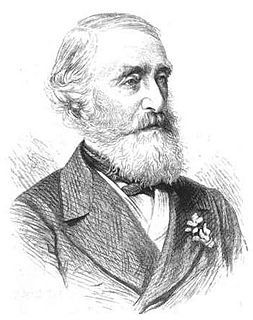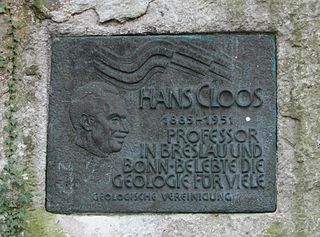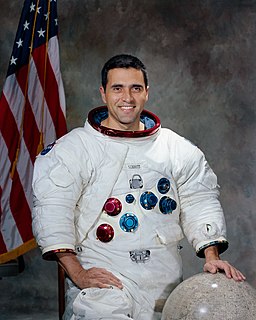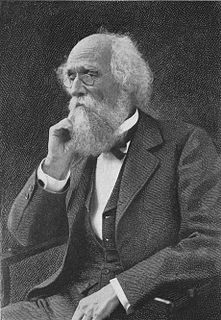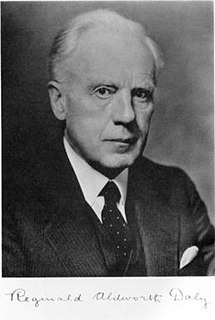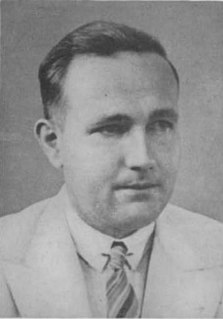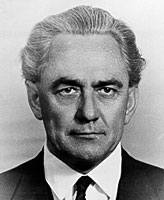A Quote by Grove Karl Gilbert
Knowledge of Nature is an account at bank, where each dividend is added to the principal and the interest is ever compounded; and hence it is that human progress, founded on natural knowledge, advances with ever increasing speed.
Related Quotes
Surely knowledge of the natural world, knowledge of the human condition, knowledge of the nature and dynamics of society, knowledge of the past so that one may use it in experiencing the present and aspiring to the future--all of these, it would seem reasonable to suppose, are essential to an educated man. To these must be added another--knowledge of the products of our artistic heritage that mark the history of our esthetic wonder and delight.
An immense and ever-increasing wealth of knowledge is scattered about the world today; knowledge that would probably suffice to solve all the mighty difficulties of our age, but it is dispersed and unorganized. We need a sort of mental clearing house for the mind: a depot where knowledge and ideas are received, sorted, summarized, digested, clarified and compared.
The main object of the work was to present such a survey of the advances already made in physical knowledge, and of the mode in which they have been made, as might serve as a real and firm basis for our speculations concerning the progress of human knowledge, and the processes by which sciences are formed.
It may well happen that what is in itself the more certain on account of the weakness of our intelligence, which is dazzled by the clearest objects of nature; as the owl is dazzled by the light of the sun. Hence the fact that some happen to doubt about articles of faith is not due to the uncertain nature of the truths, but to the weakness of human intelligence; yet the slenderest knowledge that may be obtained of the highest things is more desirable than the most certain knowledge obtained of lesser things.
A small knowledge of human nature will convince us, that, with far the greatest part of mankind, interest is the governing principle... Few men are capable of making a continual sacrifice of all views of private interest, or advantage, to the common good. It is vain to exclaim against the depravity of human nature on this account; the fact is so, the experience of every age and nation has proved it and we must in a great measure, change the constitution of man, before we can make it otherwise. No institution, not built on the presumptive truth of these maxims can succeed.
Everyone recognizes a distinction between knowledge and wisdom. . . Wisdom is a kind of knowledge. It is knowledge of the nature, career, and consequences of human values. Since these cannot be separated from the human organism and the social scene, the moral ways of man cannot be understood without knowledge of the ways of things and institutions.
We all know of course, that we should never ever ever ever ever ever ever ever ever ever ever ever ever ever ever ever ever ever ever ever ever ever ever ever ever ever ever ever ever ever ever ever ever ever ever ever ever ever ever ever ever ever ever ever ever ever ever ever ever ever ever ever ever ever ever ever fiddle around in any way with electrical equipment. NEVER.
Remember that accumulated knowledge, like accumulated capital, increases at compound interest: but it differs from the accumulation of capital in this; that the increase of knowledge produces a more rapid rate of progress, whilst the accumulation of capital leads to a lower rate of interest. Capital thus checks it own accumulation: knowledge thus accelerates its own advance. Each generation, therefore, to deserve comparison with its predecessor, is bound to add much more largely to the common stock than that which it immediately succeeds.
I had a foretaste of another, larger kind of knowledge: one I believe human beings will be able to access in ever larger numbers in the future. But conveying that knowledge now is rather like a chimpanzee, becoming a human for a single day to experience all of the wonders of human knowledge, and then returning to one's chimp friends and trying to tell them what it was like knowing several different Romance languages, the calculus, and the immense scale of the universe.
The library connects us with the insight and knowledge, painfully extracted from Nature, of the greatest minds that ever were, with the best teachers, drawn from the entire planet and from all our history, to instruct us without tiring, and to inspire us to make our own contribution to the collective knowledge of the human species.
Knowledge is not a series of self-consistent theories that converges toward an ideal view; it is rather an ever increasing ocean of mutually incompatible (and perhaps even incommensurable) alternatives, each single theory, each fairy tale, each myth that is part of the collection forcing the others into greater articulation and all of them contributing, via this process of competition, to the development of our consciousness.











